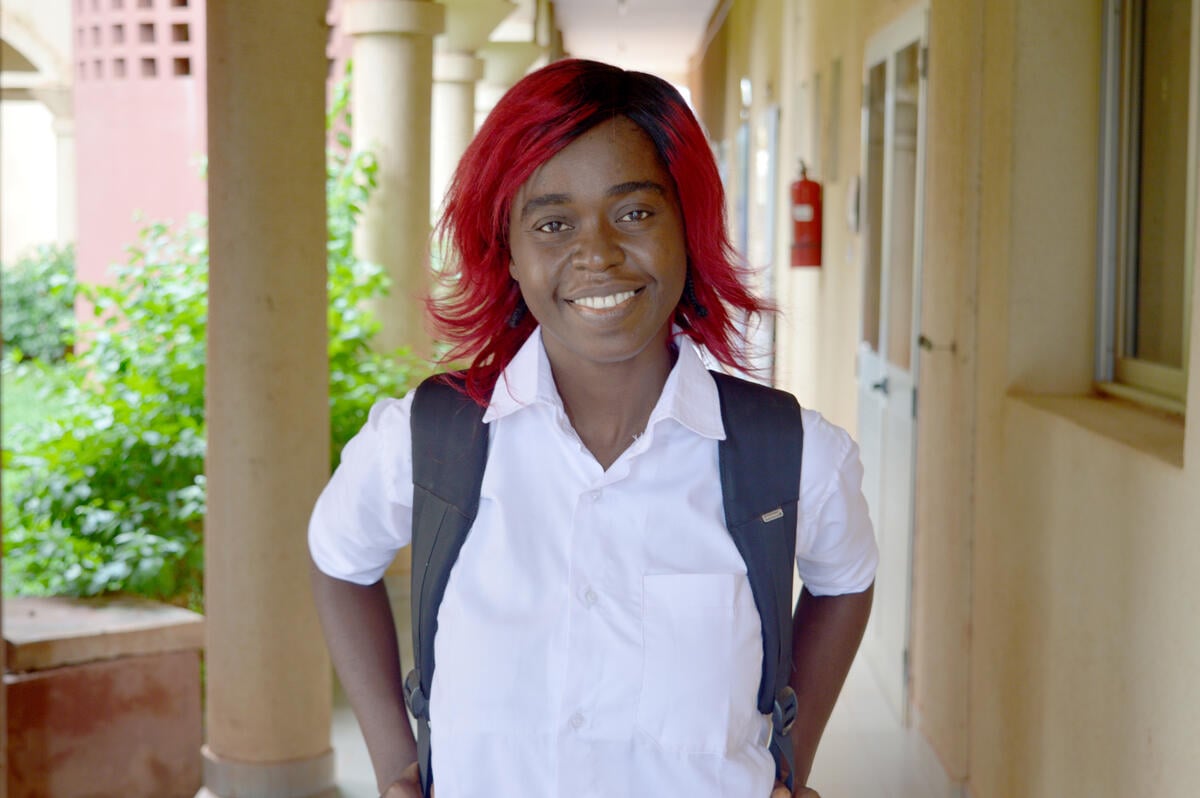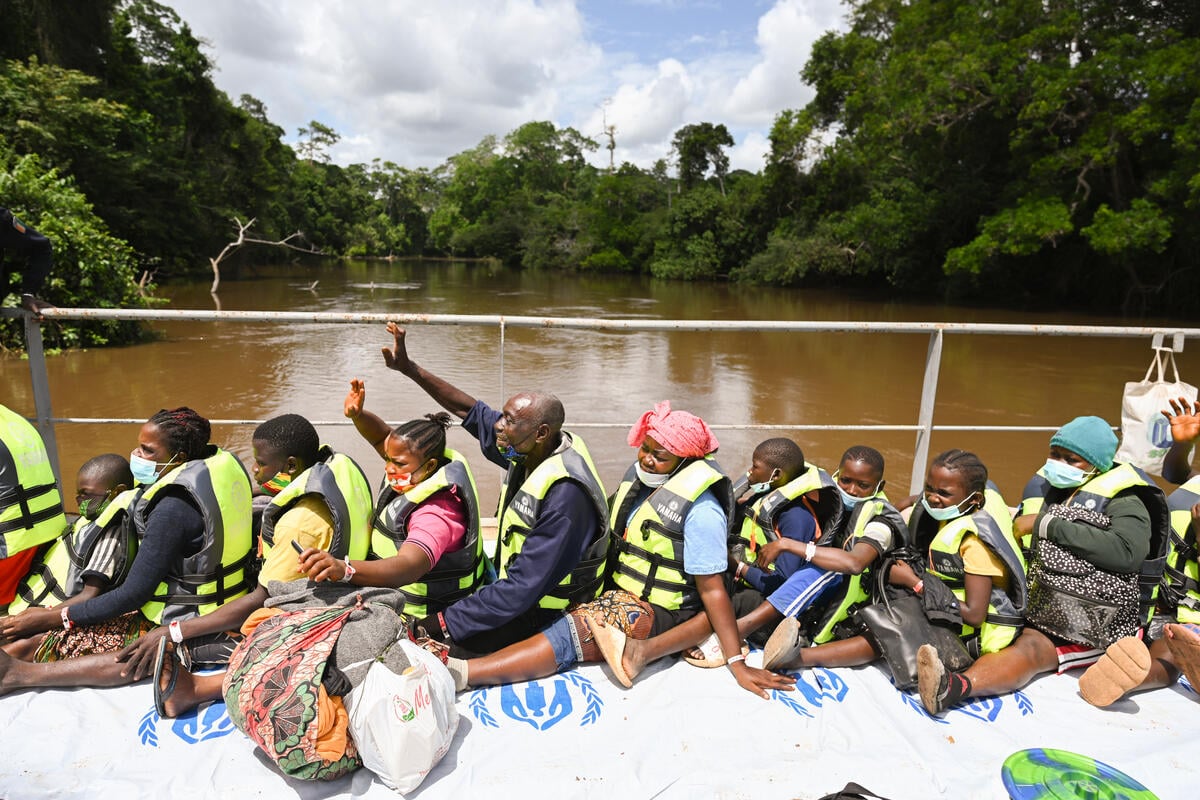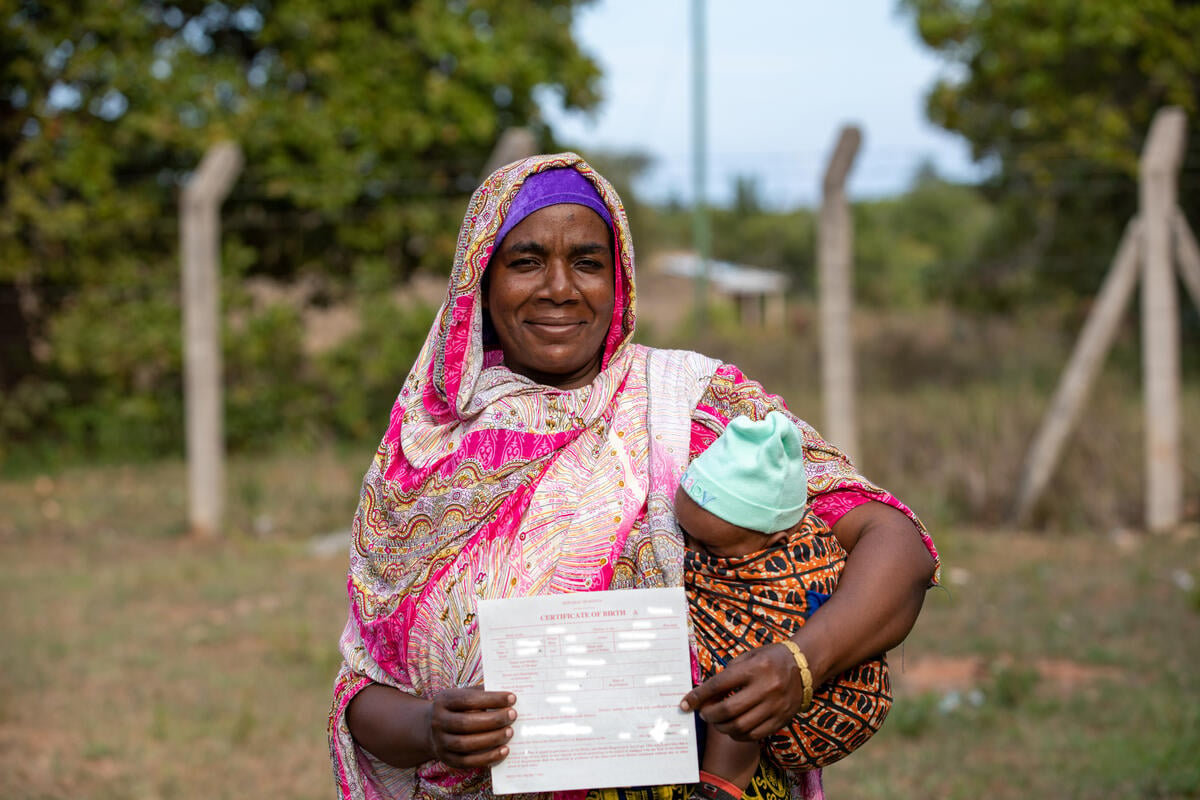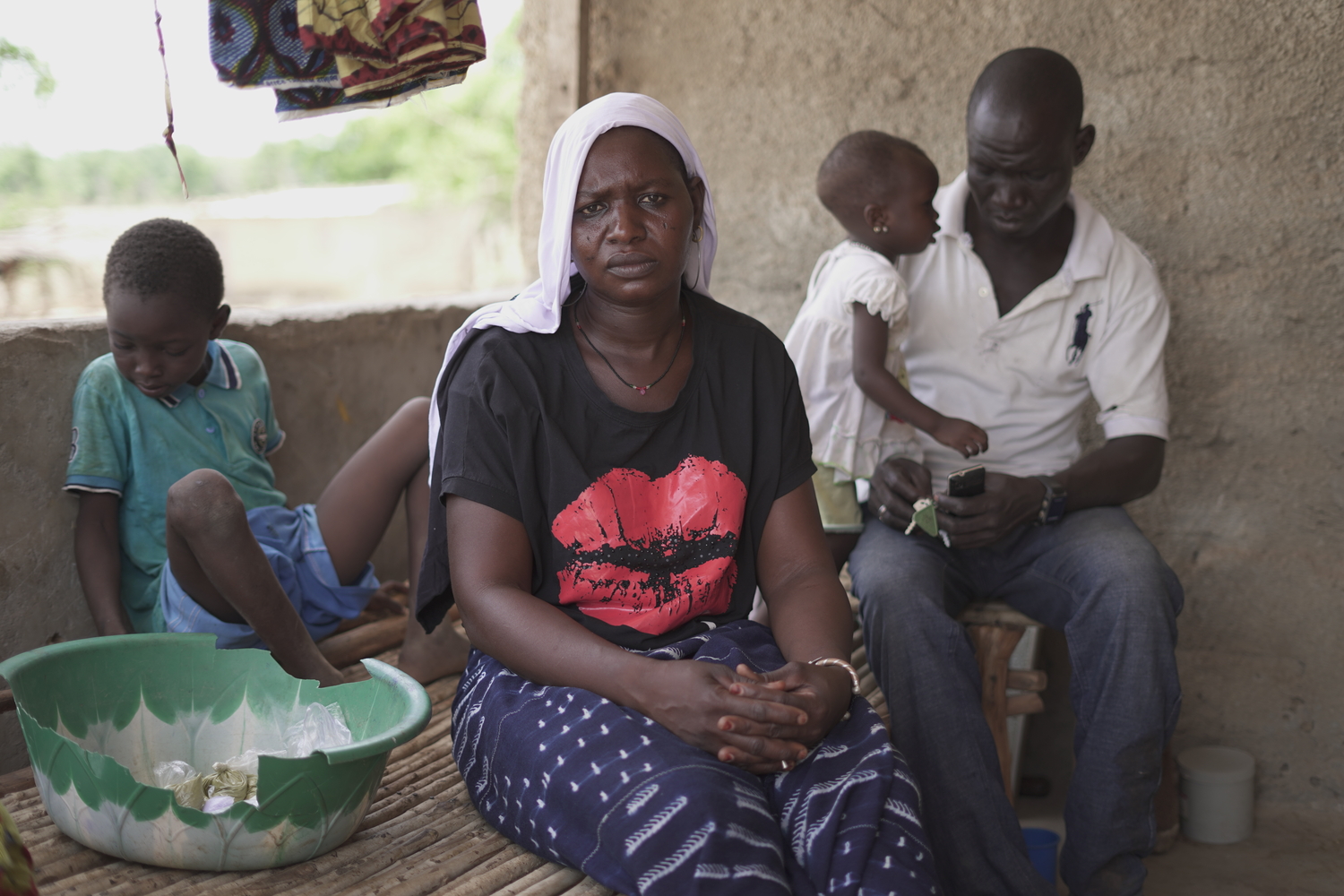Get us out of Côte d'Ivoire, plead Liberian refugees
Get us out of Côte d'Ivoire, plead Liberian refugees
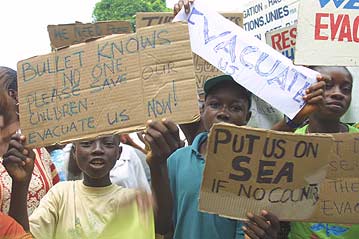
ABIDJAN, Côte d'Ivoire, Feb 18 (UNHCR) - In a sign of growing desperation, Liberian refugees today continued demonstrating in front of UNHCR's office in Abidjan, pleading with the UN refugee agency to evacuate them from Côte d'Ivoire.
"UN, put us on the sea if you cannot evacuate us out of the country," said one placard. "Refugees are not rebels," said another sign. The Liberians had started their demonstration at the end of last week, refusing to leave the office before a solution was found.
Their frustration was shared by the refugee agency, as Panos Moumtzis, who heads UNHCR in Abidjan, explained, "We have urged the government again and again to provide a safe site for the refugees, elsewhere in Côte d'Ivoire, away from the fighting zone. Appeals have gone out from the High Commissioner to neighbouring countries to open their borders for these targeted refugees."
However, he lamented, "So far we've had zero response to our request.... It is utterly disappointing that three months later the refugees are still fearing for their lives, with no other option than returning home to a war-struck Liberia."
Since rebel fighting broke out in Côte d'Ivoire last September, Liberians there have been living in fear. The local population has accused them of being part of the rebel movement amid rumours that there were English speakers among the rebels.

UNHCR has continually expressed concern about the fate of these refugees, who have been scolded for being foreigners, beaten up because they spoke English, and held by the police or military because their temporary refugee cards were not recognised or had been destroyed in police raids on shantytowns.
"As a Liberian in Côte d'Ivoire, you can run but you can't hide," said Moses from Monrovia, who has been living in Abidjan for the past 10 years. "We are grateful for UNHCR's help over the past months, but we are all dead scared to be here. We don't want to wait for someone to kill us just because we speak English. We want to be out before it is too late."
Gloria, a refugee with a three-month-old baby born in an Abidjan transit centre, added, "We have asked for help for the past five months, ever since the crisis started, but our situation has not gotten much better. We are still scared and now even more than before. Now I will sit and demonstrate here because I don't want my baby to grow up as scared as I am now. I want to go away."
In mid-November, fighting spread to the west, where most of the refugees were living in the Refugee Reception Zone (Zone d'accueil des réfugiés, or ZAR). Subsequently, more than 35,000 Liberians have been reported fleeing into Liberia, along with Ivorians and other nationals. Some Liberians and Sierra Leoneans fled the fighting zones and regrouped in Nicla camp, western Côte d'Ivoire, or around the UNHCR office in Tabou in the south-west. Tens of thousands of refugees are still displaced.
The demonstrations in Abidjan drew Liberians from all over Côte d'Ivoire. Among them were refugees hosted in Abidjan itself, displaced for a second time in their lives when the local authorities razed their shantytown homes as part of a security sweep against potential rebels and weapons. There were also refugees who had come all the way from Nicla camp, terrified of being drawn into a conflict fought only 60 km from their camp.
"I made it all the way to Abidjan, past checkpoints with horrible youths who took my last 10,000 CFA ($15) and stripped me of the extra clothes I was carrying because I do not know French language," said Dennis from Nimba county, Liberia. He was a refugee in Man until the rebels took the western city. "I want to be as far away as possible from there. I just don't need another war."
Under an emergency repatriation operation organised by UNHCR, some 2,200 Liberians in Tabou have already gone home. But returning to Liberia is not an option for the refugees gathered in front of the agency's Abidjan office.
"I left Liberia in 1998," said Dennis. "I lost my family and my wife was raped. I have little hope for peace back home. Liberia has a long way to go. For now I just want a peaceful place to rest and not feel afraid. Is it just because I am Liberian that such a place is not allowed to me?"
"I am a Liberian and a human being too," said another sign at the Abidjan demonstration, desperately held up in front of the UNHCR office. "Help us before it is too late."

